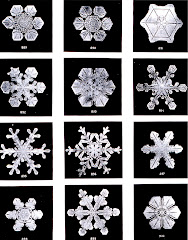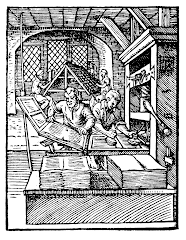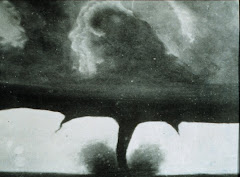Mark Jacobs
The Castle Stands
Not long ago my children decided to have me killed.
There you have it, as bald and blunt as the temper of the times demands it be. Of course I despise the temper of the times. Prefaces, I was raised to understand, were a mannerly necessity. Omitting a preface was like buttonholing a stranger in the common way to breathe garlic-scented improprieties in his face. In short, for the man I am, an unthinkable aberration. Under the circumstances I take the liberty of presuming you will overlook the lapse from form.
When the time came for Eva and me to leave, I was taken aback to observe the ease with which my mate readied the horses and handled the landau, as though she were the coachman’s daughter and had grown up slogging through dung. At this pass I do not mind admitting how useless I was. I did not assist my wife in the slightest to make our escape. I was impedimenta with a pulse, shocked at what was happening, and still more so at the treatment that had led us to flee the place where the bones of our forbears replenish the living season.
The landau is a handsome equipage. It came from England on the Doughty, a vessel whose name delighted me when I learned its etymology. It was built by a Mr. Leicester, official purveyor of wheeled conveyances to the Sovereign to whom he owes allegiance. In a world less flawed, the good Mr. Leicester would owe not mere allegiance but true fealty, sworn and signed.
There she sits on the box now, my Eva. Eyes steady on the road ahead, which is treacherous, she clucks to the bay, she cajoles the warmblood. The whip she brandishes, which boasts a hammered silver handle, ought some day to figure in the family history. It was given by my father to the head groom of his time, whose son pried it lovingly from his hand at the poor man’s death. Who will write the history, who will protect the story, now that I am gone?
Change, my children all but screamed. As soon ask the sun to alter his antediluvian circuit. Ask the stone to become a river, the river to become a head of cabbage. Like these, I simply say ‘I am.’
The castle stands. When news of the first incursion was brought me, that certainty provided comfort. Many of the stories told me by the Pater began just that way: The castle stands. They are the same stories that I, as Paterfamilias, told my own children when they were young and had ears.
Now, under the duress of flight, I am tempted to judge my own actions harshly, from the moment news of that damnable assault reached me. The dogs, especially; especially the dogs. It is a temptation to be resisted.
In their haste, my children have forgotten something, or else I was a worse teacher than I knew. When I say the castle, the word embraces both a literal and a figurative meaning. I fault myself for having failed sufficiently to develop the children’s understanding. They say the castle and picture the buff stone walls, the community the walls enclose, the tower that rises from its midst. They see the gardens within, the woods without. They recall the slightly mysterious well in the cobbled square to which the governess dragged them in spring twilight on some dubious pretext or other in order to consummate her tryst with the groom. They call up images, these children of mine, of foxes in our woods, and rainy afternoons in the game room, of dusty sessions in the library with sweet biscuits hidden behind the Ovid. And this, they tell themselves, this is the castle.
I thought, as I watched them grow, that it would be unwise to draw distinctions between the literal and the figurative senses of the castle. Let their consciousness remain Edenic, I told their mother; undivided. She agreed. We hoped by so doing to foster strength of feeling even if it came at the expense of critical clarity. Perhaps other parents in other places and circumstances have erred similarly. I concede that the depth of experience I have enjoyed in the castle may have come at the cost of a certain breadth. It will not surprise you to learn that we were bred to eschew such breadth as coarse and common, a sop for those who did not have the good fortune of living in the castle.
My children, alas, are entirely unable to imagine their father’s early years. Is it too much to wish that they expend a bit of effort to see me retrospectively? They might then be moved by the vision of a sturdy lad of twelve sent into the woods with a single arrow and the injunction to await the one essential shot, bringing down a buck with his foreshortened bow. How that lad’s heart beat in modest pride, how his limbs trembled with their separate consciousness of the buck’s sacrifice, how the late afternoon sun furbished in sublimity the trunks of the trees, the sere leaves, the very air! Whether they would then rethink their death edict is another matter.
The isolation in which I was confined certainly played havoc with my emotions, which I have been accustomed, as Pater, to hold in check. Even now, lurching in the laundau over this execrable road, shielded, as it were, by Eva’s exertions, I would speak simple words to my children and have them understood.
I will not forgive them for keeping me, for so long, from more than the most limited contact with their mother. Like mothers the world around, Eva was always quick to assume the role of mediator. Her own generous spirit was grounded in the practical. She knew how to draw the children out when their infant spirits clotted in confusion, unerringly interpreting their most oblique utterances. Of late she had stretched herself, body and soul, across the yawning gulf that divided me from my children. Why then should I be baffled that they saw her as one of them from the moment this ugliness began? I, only I, was their enemy.
How intensely I looked forward to the ten or fifteen minutes they allowed Eva to be with me each day. Wisely, it seemed to me, she decided she would not intercede on my behalf. Nor did I wish her to. Intercession were unseemly. She sought, rather, to nurture a space of peace inside which I could draw a breath that did not stutter. We reminisced, and my feelings were let out, one might say, for their daily airing.
Eva often brought gifts I was too wrought up properly to treasure. Yesterday she came into my sitting room, kissed my lips briskly, and presented a wooden box. Inside the box were layers of waxed paper, into each of which was pressed a leaf. She included one from each species of deciduous tree to be found in our woods: oak and maple, larch and birch, elm and cherry and so many others. Fall has arrived, a season that reinforces the noxious illusion of change. From the tower windows I watched the woods flame as they flamed for the first Paterfamilias so many years ago.
Prattle, that is what I thought my wife was doing when she chid me for not appreciating her gift. How foolish I was, and how fortunate finally to understand.
I was about to beg your indulgence but was prevented from doing so by a remark I recalled our eldest daughter’s having made not long ago. The begging of indulgence, Rachel told her mother and me in a pedantic tone that grated, is a linguistic anachronism, the vestige of a social arrangement based on subservience. The usage, she continued peremptorily, must be eliminated. Thus so. I stand corrected (again). Nevertheless, I remain the person I was brought up to be and see no harm in ushering in my anecdote with a customary courtesy.
At any rate, the tower in which I passed my days of captivity possesses large double windows set rather high in each wall. Below the south windows sits a brocaded chaise lounge in which I frequently read or took my notes. I was fond of the piece; legend has it that my great-grandfather conceived the idea of writing the family history while resting on it. Of course the chaise lounge was not then in the tower, it occupied a place of honor in his private quarters. Well, two mornings ago I happened to stand and stretch and look through those windows just as my son Herbert, who fancies himself a ringleader of sorts, passed below with his young son Chadrick. Chadrick, you must know, is also the name I have borne these sixty years.
You must know too that Herbert resembles me to an uncanny degree, and that our acquaintances marvel to observe the same squarish features, the same imperious manner, the same vigorous temperament make their third consecutive appearance in little Chadrick, who will some day realize -- one hopes with pride -- just what it means to carry the weight of his grandfather’s name.
Little Chadrick is scarcely two years old, still young enough to put foreign objects in his mouth because the world is still his and him in a way it must later cease to be. I watched Herbert patiently bend and extract a small round object from his son’s mouth, gently reprimanding the boy at the same time. Bully for you, I wanted to applaud my own son: You are doing your duty, teaching the child one of the many things you know, many of which you learned from me. The body of knowledge you cannot help wanting to impart is what we call tradition. Tradition protects us. It keeps dangerous objects from our vulnerable mouths. But bitterness burned the encomium before it became words. Herbert and his siblings have their own ideas about tradition. I do not share their ideas.
What would you do if you stepped through the castle gate on a glorious morning in late August and found the walls that enclosed your world befouled by crude pictures and ignorant ranting words? And if by great good fortune you saw the perpetrators of that graphic assault disappearing into the same woods through which you looked forward to taking your morning constitutional? And if you had a peremptory temperament, and the kennels lay close to where you stood watching the vandals’ retreating backs? Just so. One acts, if for no other reason than because failure to act is the first symptom of degeneration. The unexamined life is not worth living. Agreed. But examination must not lead to paralysis.
Herbert and Rachel, twins and the eldest of our brood of seven, let me know in unminced words that in their opinion I had overreacted. I despise the verb. One reacts or he doesn’t. The shading suggested by the prefix is a corruption. Corrupt the language and you corrupt the minds of those who employ the language. My children, I regret to say, may overreact. Their father? Never.
I confess I was not prepared for the speed with which the second incursion followed the first. I immediately ordered the walls expunged of the filth scrawled on them, as you may well imagine. At the same time I sent a messenger with a black armband and a sack containing a generous sum to the house in the village in which lives the family whose boy was torn apart by the dogs. His fellow vandals survived, shaken but, I am confident, having learned a profound lesson. And that was that.
Except that it wasn’t. Two mornings after the incident of the walls, one of the gardeners found the bloody head of a gamecock nailed to the gate, along with a pamphlet the incendiary level of whose rhetoric was matched only by the wretchedness of its grammar. Another instance, this, of my aforementioned point about the corruption of language. There are actions in the real world – the moral and political world, if you will – that proceed from and at the same time behave as the functional equivalent of a dangling modifier, a non-sequitur, inappropriate hyperbole.
I did not intend to rave here. I had hoped, rather, to explain why things fell out as they have fallen. Politics I leave to the partisans. They are equally welcome to the slogans, those verbal bludgeons with which fools and zealots would beat me into submission. But I will not submit. The castle, I say again, embodies more than the literal construct.
When the pamphlet and the bloody head were brought to me I responded with measured calm. I was offended to the quick at the sight but convened my children to a family council in the drawing room. Family councils are traditionally held in the drawing room, which boasts French doors that open out onto the wide, high lawn on which the children used to delight in watching rabbits gather at nightfall. They awarded pet names to each animal and invented fantastic life stories for them, imagining a complete and curiously satisfying world. Eva and I encouraged the game, assuming it was bound to intensify their attachment to the castle. Generations of children have been fascinated by generations of rabbits on that green expanse.
A sense of my progeny’s attachment to the castle was not the predominant impression I gained as we sat around the table, myself at the head, their mother ensconced in her own favorite chair near the doors, which were open to catch the breeze, should Nature so favor us. I have no interest in reproducing the unpleasant discussion that followed. Times had changed, my children assured me; they were changing still. The family and the castle had to change along with the times.
How can one sustain a rational discussion if the premise with which it is inaugurated is not only specious but an abomination? Herbert and Rachel, having arrogated the role of spokesman for their generation, were positively disrespectful. Their voices were raised to a register guaranteed to produce more heat than light. In the end, a painful terminus, their intransigence obliged me to exert my prerogative as Pater. I laid down the law: There were people in the village who found it in their own best interest to cooperate with us. Their services would be called upon. The author of the scurrilous pamphlet would be found and punished. That was the end of it.
It wasn’t, of course. But do not labor under the impression that I see what happened as in any way arbitrary, that if I had responded differently the issue of events would be different now. Truth is no more malleable than good grammar. I did what the Pater was obliged to do. My blunder lay in failing accurately to gauge the hostility of my children.
The man who had written the pamphlet was identified. He was not so young a person as I had presumed. Therefore he was doubly guilty, having failed to profit in wisdom from his forty seven years under our tutelage. Making an example of him will make a martyr, Herbert told me, but I have always found an architectural charm in making the punishment fit the crime. I drew a purring sort of satisfaction from listening to the cur recite the verses he had been obliged to compose in our honor. The whole village, everyone from the castle, everyone in our modest sphere of influence turned out for what was, after all, a command performance.
The family of the boy killed by the dogs were among those in attendance. I was gratified to see the ardor with which they applauded the writer’s humble paean, which evinced a rough talent I would have been happy, in other circumstances, to cultivate. When the event was concluded, I made it a point to stop before getting into my carriage. I shook the father’s hand. Whether there was anything occult in the charcoal eyes with which he returned my gaze I leave for another person to speculate. Speculation is like brandy, best taken in small quantities.
Several days of peace and signally fine weather followed as the season gathered force. Mornings the air was bracing, and the thinnest skin of ice formed on the green ponds. The leaves reacted to the cold with their traditional shock, which translated itself into the jumble of color I later admired from my lonely outpost. Little Chadrick, my namesake, began to speak in complete imperative sentences. Rachel announced that she was pregnant, and I sent a congratulatory gift to my son-in-law Rolf, a beautifully bound edition of the family history compiled by my great-grandfather. It was my intention some day to update and republish that history.
Our serenity, but not the clear weather, was broken by a series of incursions that followed one upon the heels of the next so quickly we scarcely had time to reflect. The warehouse was broken into and the hams carted off. The landau was damaged, though not seriously, when a thin man who had disguised his face targeted it with some sort of explosive device. More noxious slogans sprouted on the castle’s walls. A lovely, gentle woman who works in the kitchen was accosted on the road into the village by a band of thugs who threatened violence against anyone who continued in service to the family. (I would give a good deal to have witnessed their reaction to the defiant epithet she reportedly flung in the faces of those brutes.)
A complete register of our tribulations and the indignities to which we were submitted is not necessary. You will understand that we were driven, all of us, to distraction. The people from the village on whom we had traditionally relied began to fail us. One morning we woke to find the golden carp in the ornamental pond had been poisoned, which led us to assume that we had acquired enemies within the walls. Anywhere one looked he was likely to encounter the grisly spectacle of the head of a gamecock or some equally gruesome token of rebellion.
When several of the younger grandchildren, out playing as children must play, came upon one of those bloody heads impaled on a post they came running into the castle in a screaming, terrified bunch. And their parents began, as one might put it, to overreact.
I was spending my every waking hour overseeing the investigation and prosecution of the miscreants who had banded together, seemingly, to no other end than causing my family pain and suffering and humiliation. And I was having some success, thanks to the efficiency and dedication of the chief constable, a stalwart man whom I myself had appointed to his position when he was a hopeful individual of five and twenty with substantial mustaches and highly developed arm muscles. Culprits were identified, judged, and swiftly punished. Yet our efforts did not satisfy my children, not after they watched their precious chicks tear home in a panic.
I don’t know whether it was Rachel or Herbert who convened the family council, a breach I am less likely to forgive than almost any of the others committed against me. The Paterfamilias convenes the council. No exception to the rule exists. Nevertheless I attended the meeting, thinking I would use the occasion to bring them to their senses. I was not given the chance to do so, however. Evidently the children had been plotting before the council began, and the decision to appease had already been made. My role in what I don’t know whether to call a travesty or a charade was to bless their plan of appeasement.
You must know me well enough by now to picture my rejoinder to their demand. We do not appease, I pointed out. We give, but only when our hearts are moved by the spirit of generosity to give. Our hearts, at that time, were not so moved.
I was ordered to keep silent. I sensed rather than saw Eva flinch in her chair, where she was working on a piece of embroidery for one of the daughters-in-law. She did not protest. Protesting would have drawn attention to the intolerable insult done me. But she could not help reacting, for which fineness of feeling I loved her more passionately, more deeply, than I think I have ever loved her.
The particulars of my children’s plan exercise an eerie hold on my imagination. I would just as soon forget, but I find myself dwelling on them: the community council they proposed to establish “in order to improve the flow of communications.” An increase in the daily wage, an increase in the per capita allotment for schooling, an increase in the number of hours the leech doctor would attend to people. If it wasn’t an increase, it was a decrease: a decrease in the number of hours worked each day, a decrease in the percentage of time devoted to studying family history in the public school. I saw them as hills and valleys, those increases and decreases, as nausea-inducing ups and downs like the roads on which my redoubtable wife has chosen to make our escape.
Those who live in the castle do not appease.
One venerable saw has it that the man who does not bend will ultimately break. In my case the axiom does not hold. I will not bend, nor will I be broken. Had I consented to their plan, had I allowed myself to be drawn into putting it into practice, I would have betrayed not just myself and Eva, not just the castle and all who live in its sanctum, all those who ever lived there, but my children themselves, and my children’s children. It would have been tantamount to saying to them something like this: ‘I have lately discovered that the castle is, after all, nothing more than a good idea, nothing more than a noble ideal to which frail, sublunary creatures like ourselves cannot hope to aspire.’ I like to think I would not consent to such treachery even under torture, but certainly I was not about to consent merely to rid myself of the generalized opprobrium that came my way.
The other day Eva brought to our daily assignation the bit of embroidery she had been working on to show me that it was finished.
“Damn the child it’s meant for,” I told her, “and the child’s parents, too.”
I think and hope that Eva forgave me the declension, which was momentary.
I gather that the decision to confine me in the tower – a decision, effectively, to strip me of the Paterfamilias title – was unanimous. I don’t really care. If there were doubters, their inaction and their misgivings amounted, in the end, to support for those who betrayed and dishonored me, the twins chief among them.
Eva kept me apprised of developments. She had a way of transmitting what was difficult to convey in ways that did not wound. She did so indirectly, in the gentlest asides in the intimate conversation we embarked upon the day we first met, here in the castle, so many years ago, and which has never ceased. In any event, I find no solace in having been proven right. Appeasement did not effect the miracle it was meant to effect. If anything, our people became still more resentful, and hence bolder and more demanding, than they were before this nightmare began. Their actions, their attitudes, were absolutely brazen.
There is a certain elegance of shape to be found in my children’s decision to have me murdered. If one pushes the concept of appeasement far enough he winds up at the notion of a sacrifice. And what better sacrifice to appease people’s hunger than the sacrifice of the father, the protector himself? They have discovered, these recalcitrant children of ours, the practical virtues in ritual, in an adherence to forms. If the Paterfamilias did not exist, whom indeed would they offer up in the name of fluid communication between the classes, in the name of rosy red progress?
How it must have cost Eva to convey to me the singular news that I was to be murdered by the fruit, the very issue, of my loins.
Well. The box of leaves. Late last night I stood admiring in lamplight the waxed collection Eva had put together for me, her prattle from the day before coursing idly through my mind. You don’t care enough for the presents I bring you, she had reproved me; you don’t pay them sufficient attention. And finally it struck me, dunce that I was. I turned the box upside down on the low table next to the chaise. I found the hidden door, unlatched it and withdrew the key she had secreted there. I was out of the tower before dawn, when I knew she would be waiting for me.
Thus, improbable though it be, I am unhoused. There sits Eva on the box of the landau, inside which I ride like luggage. Although she has never driven a carriage, my wife appears to enjoy a degree of native skill, negotiating turns with the confidence of a master coachman. Our privacy as we travel is the most splendid gift, an unanticipated state of grace. I realize that I am exhausted, I am quite undone. Up and down, up and down goes the road, and I must bite my tongue not to complain at the same time that the urge to complain shames me. The woods on either side of the road are not notably dark, but they are hostile.
Once, gaining the crest of a hill, Eva stopped to let the horses breathe. She turned around and looked at me. “Don’t look back, Chadrick.”
“Why not?” I responded peevishly.
“The castle,” she said quietly.
Tender in adversity, my wife knew I could not bear the sight of what was no longer mine. The castle stands. Yes! And as she skillfully guided the horses down the corduroy road I understood with a sickening certainty that a vinegar sea lay below us, and in its bitter waters I was soon to drown.
_____
Mark Jacobs has published more than 80 stories in magazines including The Atlantic and The Iowa Review. His fifth book, a novel set in Turkey called Forty Wolves, was published in 2010 by Talisman House.
_____
RECONFIGURATIONS: A Journal for Poetics & Poetry / Literature & Culture, http://reconfigurations.blogspot.com/, ISSN: 1938-3592, Volume 5 (2011): Disappearance











No comments:
Post a Comment